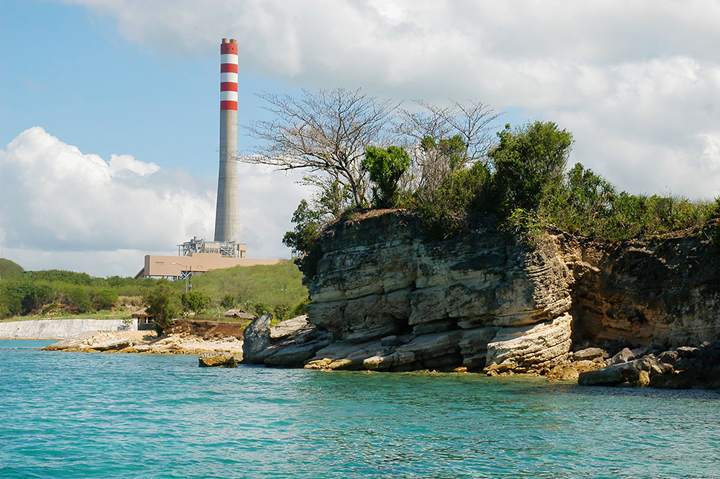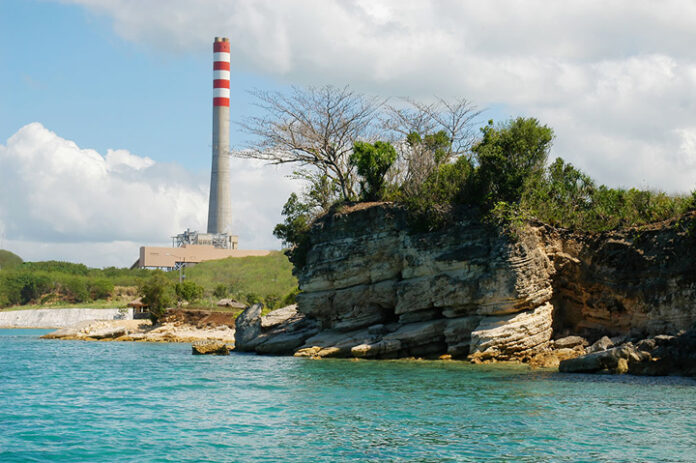
THE Department of Energy (DOE) has flagged power generation companies for their prolonged power plant outages, and the system grid operator for not securing enough firm-contracted ancillary reserves (AS).
In fact, the agency said it would refer this matter to the Energy Regulatory Commission (ERC), the Philippine Competition Commission (PCC) and the Department of Justice (DOJ) for enforcement assistance and case build-up.
“We have laid out the policies already. If these policies were not issued, it could have been more chaotic. We are simply asking them to comply,” said DOE Undersecretary Felix William Fuentebella in an interview.
Rules of the game
THERE is an existing directive from the DOE that power producers are not allowed to conduct maintenance shutdown during summer months and realign instead the planned outage schedule toward the second half of the year. This is meant to maintain sufficient supply in the grid during summer months when demand is at its peak.
Likewise, the ERC has issued stringent rules on planned electricity outages to promote accountability among power plant operators and the transmission grid operator. The rules limit the allowed number of days that power plants should undergo shutdown, both planned and unplanned.
Older coal plants, for instance, are only allowed to have 27.9 days of planned outages and 16.8 days of unplanned outages, while circulating fluidized bed (CFB) coal plants have 15.4 days of planned and 16.9 days of unplanned shutdown.
Also, a power plant that runs on gas should not be out of service for more than 29.2 days, including 6.5 days of planned outage and 22.7 days of unplanned outage.
Based on data provided by the Joint Congressional Energy Commission (JCEC), a total of 12 power firms did not comply with the ERC’s Reliability Index. Their power plants—mostly thermal and gas—exceeded the maximum allowable planned and unplanned outage days that are spelled out in the ERC rules.
That scale of outages shaved at least 1,900MW of capacity from the grid.
Nothing new–Aboitiz Power Corp.
WHEN sought for comment, Aboitiz Power Corp. said the issue on alleged economic sabotage is not new. Still, it maintained that none of its plants were shut down on purpose.
“Our baseload plants are contracted almost at capacity and if they are on outage, we have to continue supplying our customers by buying from the spot market or through replacement power contracts, if they are available. Most probably, when a baseload plant goes down, prices in the spot market spike, thus the cost of power that we supply our customers bought from WESM [Wholesale Electricity Spot Market] will be usually higher than our selling prices,” the firm said.
“Thus, it makes no sense to intentionally put a plant in outage to game WESM since we have to buy at high prices to fulfill our contracted commitments. We only make money when our plants are operating,” Emmanuel Rubio, Aboitiz Power president, said in a text message.
One of its power plants has been on prolonged shutdown since February. It could be back online by August.
Senate Energy Committee chairman Sherwin Gatchalian had asked the ERC at the recent JCEC hearing why it has not sanctioned a single power firm. He warned ERC chairman Agnes VST Devanadera to make sure that all guidelines, rules and policies must be enforced “or else, accountability fails.”
The ERC chief assured him that a final report would be out soon. “The final report is not ready yet. We just started in January 2021 and just four months to it. But we have some data. About 15 or 16 gencos [generating companies] already, but we have to get the analysis. When we are done with this, the most logical thing to do is to implement and impose penalties when needed,” Devanadera told the committee.
The senator also called on the ERC to “flex its muscles” being the power industry’s regulator. Gatchalian was referring to the DOE policy on ancillary services, or AS, which requires the National Grid Corporation of the Philippines (NGCP) to procure AS through firm contracts.
Crucial AS
THE AS are necessary to support the transmission capacity, maintaining reliable operation of the transmission system and electricity supply in the grid.
Energy Secretary Alfonso Cusi pointed out that ancillary services are crucial since these are power reserves that could be tapped whenever supply is thin. Based on DOE data, a total of 2,604 megawatts (MW) are identified as required AS, but only 727 MW are deemed confirmed ancillary reserves to date.
“The policy is there. Why don’t they follow the policy? We’ve had exchange of letters in the past,” said Cusi, referring to NGCP.
Attorney Ronald Dylan Concepcion, who represented NGCP during the hearing, admitted that the grid operator could not contract firm AS reserves because supply is lacking.
“Reserves could only be procured if there is sufficient supply of power. If there is no supply provided by generation companies, then there is no reserve to be procured,” Concepcion explained.
Besides, the NGCP lawyer pointed out, AS is not a remedy for the lack of supply. “AS is an excess of generation plants. From my personal knowledge, there is no available capacity right now to be contracted for AS. We’d like to submit a report on that,” he said.
Gatchalian acknowledged the importance of the said DOE policy, saying this is “a very important feature” of the Electric Power Industry Reform Act of 2001 (Epira). “The policy here is to fully contract ancillary services, but it is not happening,” the senator noted, adding that a separate hearing on AS will be scheduled.
No summer interruption
AMID the lack of power reserves, the DOE assured the public that the Luzon grid would still not plunge into darkness during summer months.
As an ironic offshoot of the pandemic, the electricity demand in the Luzon grid is nowhere near the projected numbers of 11,841 MW. The Luzon grid is expected to register a peak demand of 11,841 MW sometime mid-May. But DOE Director Mario Marasigan said actual demand is “not close enough” to those numbers due to sustained community quarantine.
“We are not immediately seeing potential alert for the rest of the country primarily due to the parameters that we have not considered directly with our 2021 projections—La Niña and the current quarantine situation. Rather, we’re actually focusing on supply,” said Marasigan.
DOE Assistant Secretary Redentor Delola said that for as long as there would be no substantial outages, there won’t be any brownouts in the coming months.
“The worst-case scenario would be ‘yellow alerts’ or thinning of reserves on weeks 15 to 18 (within second week of April to first week of May); and then weeks 21 to 25 or second week of May to mid-month of June. What we expect moving forward, April, May and June; we would not be able to hit 11,841 MW because demand would be substantially lower.”
As a precaution, the country’s largest power distributor seeks to procure 220 MW to 260 MW to augment supply during the summer months.
Timely government intervention?
MANILA Electric Company (Meralco) first vice president and head of regulatory management Jose Ronald Valles said they have asked the DOE and the ERC to exempt Meralco from conducting a Competitive Selection Process (CSP) for the procurement of the additional power requirement.
Instead, Meralco will seek approval for “emergency procurement” given the situation in Luzon where additional power is needed.
“The contract capacity that we’re looking at is 220 MW for the first six months and will ramp up to 260 MW for the next six months. This is aligned with Meralco’s forecast that showed upcoming scheduled outages of both power plants and the SPEX-Malampaya pipeline, which may be aggravated by forced outages of power plants and gas supply restrictions, as observed recently,” said Valles.
Cusi insisted that the country needs reliable power supply and reserves. One way to possibly achieve this is to allow the government to take part in power generation.
“There is a question which I have been raising before. Should the government start being involved in generation for the reserve? Will the government build the plant, operate it as a reserve and privatize it as we go along? I think that the government should go back to the generation so that we can have that continuity,” he said.
However, the committee noted that Cusi’s proposal runs counter to the intent of Epira, which promotes competition, encourages market development, ensures consumer choice, among others.
Despite the differences of opinion, the power industry agreed that the country could not afford to experience brownouts during the pandemic, especially when Covid-19 vaccines need to be stored in specific cold conditions to maintain efficiency.
“These days, we cannot afford to experience any power interruption as most workers, even government employees, are on a work-from-home scheme, some on distance learning and online business transactions,” Gatchalian said. “We cannot have brownouts because the vaccines are set to arrive by May or June. The rollout of the vaccines must not be hampered.”
Image courtesy of Antonio Oquias | Dreamstime.com
Read full article on BusinessMirror



